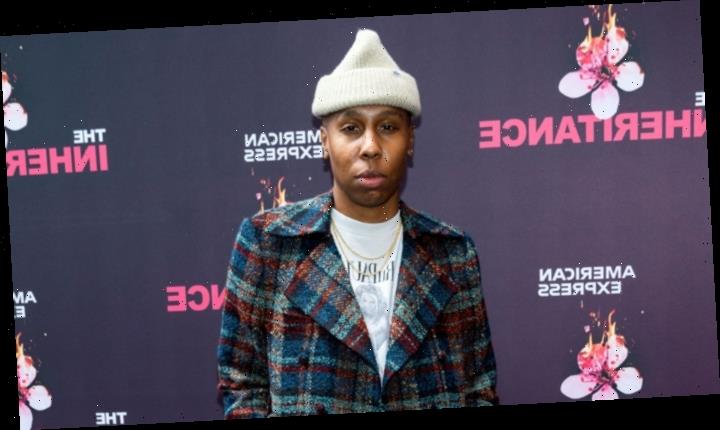“The Inheritance” pulls viewers in many directions — toward pain and hope, trauma and healing. It’s what brought stars like Andy Cohen, Anderson Cooper, Sarah Jessica Parker, Matthew Broderick and Lena Waithe to Broadway on Sunday — a chance to heal, to remember and grieve.
Also in attendance for the premiere at the Barrymore Theater was Victor Garber, Judith Light, Matt Bomer, John Cameron Mitchell, Uma Thurman, Jeremy O. Harris, Tina Fey,Stockard Channing and Glenn Close.
A seven-hour, two-part epic of gay life in New York City, “The Inheritance” is playwright Matthew Lopez’s panoramic opus of queer history, questioning what a younger generation, enjoying the fruits of liberation, owes to the ghosts of an ancestry who fought at Stonewall and survived to die, a short time later, of a plague fed by this country’s disdain to see its victims at all.
“We inherited something from our queer ancestors — a trauma,” said Arturo Luís Soria, one of the young actors playing the gay men in search of a common history in “The Inheritance,” at the opening after-party. “Only now, it seems, are we, the younger generation who lived because of them, able to process that trauma fully, to be able to pay homage to those who passed before, to take from them the lessons we can.”
Just before opening day performances began Sunday morning, Lopez told Variety, “It started with the idea that I needed to understand my place in the community and my place in history. But what I didn’t anticipate was that I was creating a forum that allowed people to share their stories with each other, with themselves, with me, and with the company.”
He continued, “People — older gay men and queer people who lived the history in this play — want to tell you their stories after they’ve seen it. No one ever can know the full totality of an experience as traumatic as that, as theirs. It takes years to understand what happened; healing takes a long, long time.”
“The Inheritance,” whose intricate plot shadows that of E.M. Forster’s novel “Howards End,” weaves the life of Eric Glass, a 30-something gay New Yorker, with his irreparably damaged boyfriend, Toby, a young, gay escort, Leo, and a middle-aged gay couple who survived the AIDS epidemic but used their upstate home as a restful passageway for many friends dying of the disease. As the characters’ lives, led by Forster’s narrative guide, come together in an intergenerational struggle for the meaning of collective history, that home — ‘the inheritance’ — becomes a staging ground for the rebuilding of an ebullient queer life.
But a seven-hour New York gay epic on the Broadway stage, resurrecting a traumatic past in service of understanding queer community and, importantly, political struggle, should feel familiar. While Lopez is dramatically indebted to early gay authors like Forster and playwrights like Terrence McNally, “The Inheritance,” for good reason, feels a lot like the new “Angels in America.”
“You can’t help but mention the two in the same breath,” actor John Benjamin Hickey said at the after-party, held at Tribeca 360 in Manhattan. “Matthew pays great homage and respect to the people who came before him. The similarities to ‘Angels’ are obvious, to Terrence’s writing, too. But this play is much more about healing and about community.”
“While ‘Angels in America’ looked very much at who has power and who does not in the political climate of the United States, this play says, ‘Okay, now that you have that power, what do you do with it?’,” Andrew Burnap, who plays Toby Darling in the play, added. “How do you heal, not even your pain, but the pain of the generations who came before you? How do you heal yourselves from the gradual loss of your history, the loss of community and sharing stories?”
While “Angels in America” emerged the AIDS epidemic as emblematic of larger, deeper political illness in the United States, “The Inheritance” is a feat of lustrous, palpable mending, of rebuilding — of daybreak. If you see the show, that remedying has a sound.
“It’s unbelievably powerful to be onstage and be listening to the weeping, to the tears, a wave of them stretching to the back of the theater,” Soria reflected on the opening night red carpet. “In that moment, you can’t help but feel the power of the words you’re speaking and to feel the weight of what that audience has just gone through. It’s the sound of grieving. Theater is a communal activity, and so is healing.”
Popular on Variety
Source: Read Full Article
